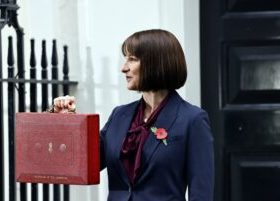A leading solicitor involved in the Supreme Court victory that shielded regional taxi firms from blanket VAT charges has warned that Chancellor Rachel Reeves’ proposed “taxi tax” could have damaging consequences for small operators and vulnerable passengers.
Layla Barke-Jones, Dispute Resolution Partner at law firm Aaron & Partners, represented Delta Taxis in the landmark case that confirmed private hire operators outside London are not automatically required to charge VAT on all fares. The ruling provided long-awaited clarity for thousands of operators — and protected passengers from sharp fare increases.
But with reports suggesting Reeves may impose mandatory VAT on all private hire fares in the Autumn Budget, Barke-Jones says the move would overturn hard-won legal certainty and disproportionately penalise those least able to afford higher costs.
“We are very concerned at the murmurings around a potential ‘taxi tax’ in the upcoming Budget,” she said. “The Supreme Court confirmed this summer that long-standing business models used by private hire operators remain lawful and that VAT is not automatically required. That outcome helped protect passengers from fare increases and allowed local businesses to operate sustainably.”
Barke-Jones said that forcing VAT on all fares would require a change in the law, overriding the Supreme Court’s position and placing an unfair burden on small operators already running on tight margins.
“Most vitally, we must not lose sight of who this impacts,” she added. “Private hire taxis are essential for elderly passengers, disabled people, lower-income households and others who rely on them for daily travel. These are the very groups who would feel any cost increase most sharply.”
The solicitor urged ministers to consult widely — particularly with passenger groups — before making a decision that could have “far-reaching social and economic consequences.”
Her warning comes as operators across the country brace for a Budget in which Reeves is expected to raise multiple small taxes to plug a multibillion-pound fiscal gap after ruling out increases to income tax.
Read more:
New taxi VAT rule would hit vulnerable passengers hardest, warns lawyer behind landmark Uber case








